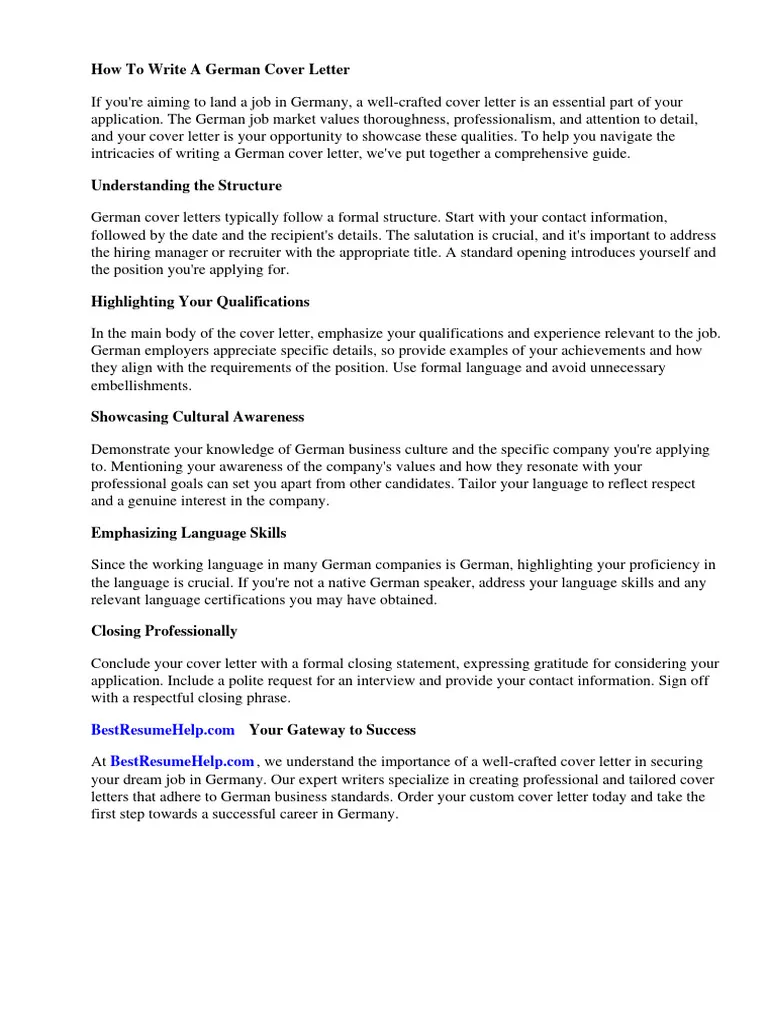What is a Cover Letter & Why You Need One
A cover letter in Germany, just like in many other countries, serves as your personal introduction to a potential employer. It’s a crucial document that accompanies your resume, providing a more detailed insight into your qualifications, skills, and, most importantly, your motivation for applying. Unlike a resume, which is a factual summary of your experience, a cover letter allows you to tell a story, explain your career choices, and express your genuine interest in the specific position and company. It’s your chance to make a strong first impression and convince the hiring manager to read your resume more closely. Think of it as a carefully crafted marketing document selling you to the company.
Key Components of a German Cover Letter
A successful German cover letter differs slightly from those used in other countries. It typically adheres to a more formal tone and structure. Understanding the key components is essential to crafting a document that resonates with German employers. The structure includes sections like the header with contact information, a formal salutation, a compelling opening paragraph, body paragraphs that highlight relevant skills and experience, a closing paragraph with a call to action, and a professional sign-off.
Header & Contact Information
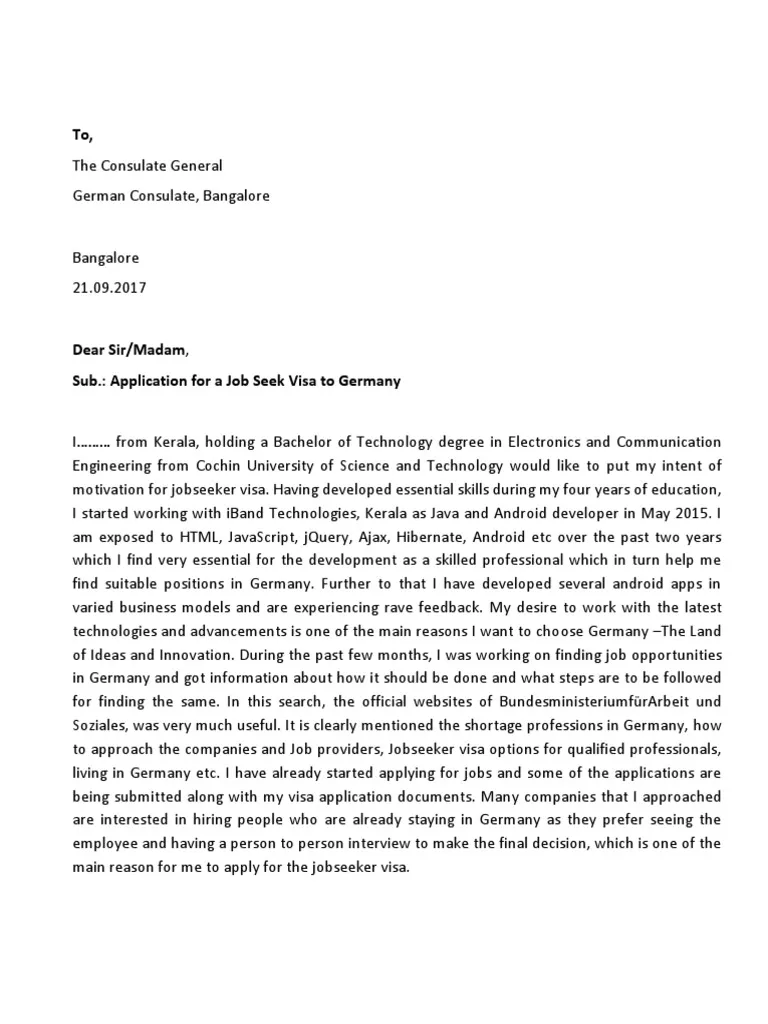
The header of your German cover letter should include your full name, address, phone number, and email address. It’s also common practice to include the date of the letter. Beneath your contact details, include the recipient’s information, such as the name of the hiring manager (if known), their title, the company name, and the company’s address. Accuracy and attention to detail in this section are crucial, as they demonstrate your professionalism and respect for the recipient.
Salutation
The salutation is a critical aspect of a German cover letter. If you know the name of the hiring manager, use “Sehr geehrte/r Herr/Frau [Last Name],” (Dear Mr./Ms. [Last Name]). This personalized approach shows you’ve taken the time to research the company and position. If you are unsure of the hiring manager’s name, a safe alternative is “Sehr geehrte Damen und Herren,” (Dear Sir or Madam). Avoid overly casual greetings; formality is highly valued in German business correspondence. Consider the company culture, however; a more modern company might accept a less formal greeting.
Opening Paragraph
The opening paragraph should immediately grab the reader’s attention and state the purpose of your letter. Clearly mention the specific position you’re applying for and where you saw the job advertisement. Briefly highlight your most relevant qualifications or skills to pique the reader’s interest. This is your elevator pitch; make it count! Focus on why you are the right fit for this specific role. Mentioning a company value or project you admire can also strengthen your opening.
Body Paragraphs
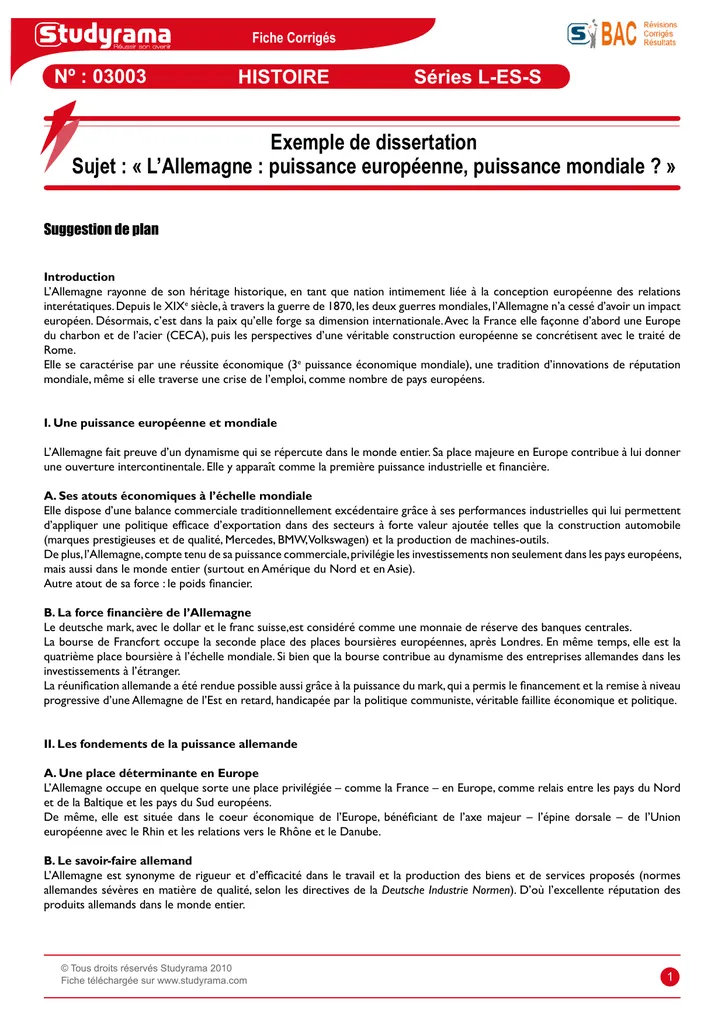
The body paragraphs are where you provide detailed information about your qualifications, experience, and motivation. Use these paragraphs to connect your skills and experiences to the specific requirements of the job description. Provide concrete examples of your achievements and quantify your results whenever possible. Keep the tone professional and concise, focusing on the value you can bring to the company. Each paragraph should address a specific aspect of your qualifications, ensuring a logical flow and clear communication. Use action verbs to describe your accomplishments.
Highlighting Relevant Skills and Experience
When highlighting your skills and experience, be specific and relevant. Carefully review the job description and identify the key skills and qualifications the employer is seeking. Then, provide evidence from your past experiences that demonstrates your proficiency in these areas. Use the STAR method (Situation, Task, Action, Result) to structure your examples, providing context, detailing the challenges you faced, outlining the steps you took, and quantifying the results you achieved. This approach helps the reader understand your capabilities and the value you can bring to the role.
Showcasing Your Motivation
Expressing your genuine motivation is critical. Explain why you are interested in the specific position and the company. Show that you understand the company’s mission, values, and goals. Research the company’s recent projects, initiatives, or news, and mention something that resonates with you. Demonstrate your long-term career aspirations and how this role aligns with your goals. Tailor your motivation statement to each application, showing a personalized interest rather than a generic response. This demonstrates that you are genuinely interested in the opportunity.
Demonstrating Cultural Understanding
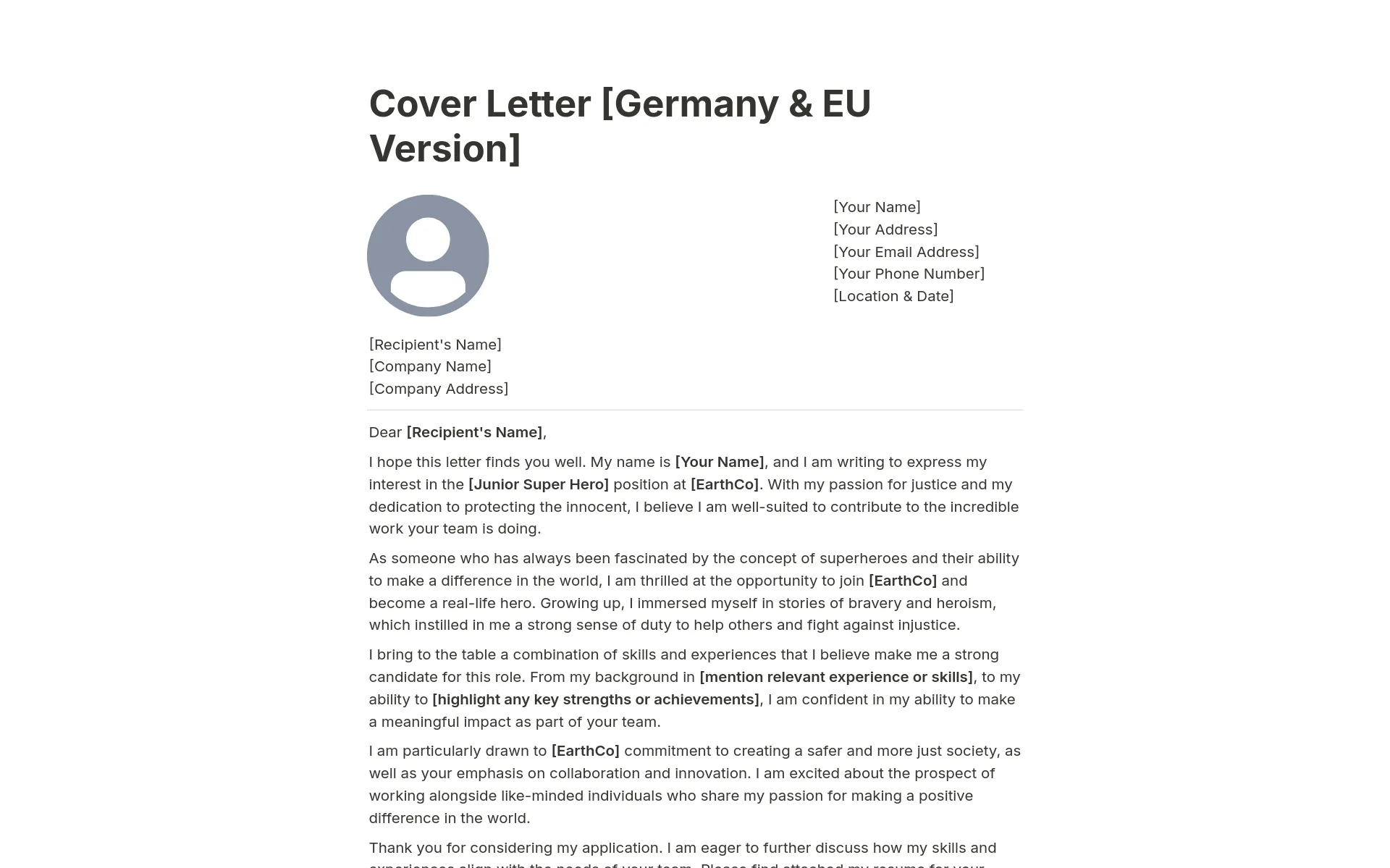
If you’re applying from outside Germany, showing an understanding of German business culture can set you apart. Research German work ethics, communication styles, and corporate culture. Mention any experience you have with German companies or projects. Highlight your language skills, especially if they are relevant to the position. Show that you understand the importance of punctuality, organization, and direct communication, which are highly valued in German workplaces. This shows that you are prepared to adapt to the local work environment.
Closing Paragraph & Call to Action
The closing paragraph should reiterate your interest in the position and the company. Summarize your key qualifications and restate your enthusiasm. Include a clear call to action, such as expressing your availability for an interview. State that you are looking forward to hearing from them soon. Keep the tone professional and confident. Avoid being overly assertive; instead, express your eagerness to discuss your qualifications further. Thank the reader for their time and consideration.
Sign-off & Signature
The appropriate sign-off for a German cover letter is “Mit freundlichen Grüßen,” (With kind regards). This is the standard and most appropriate closing. After the sign-off, leave space for your handwritten signature if submitting a printed copy. If submitting electronically, you can simply type your full name below the sign-off. Ensure your signature is legible and professional. This final touch adds a personal and formal element to your application.
Common Mistakes to Avoid
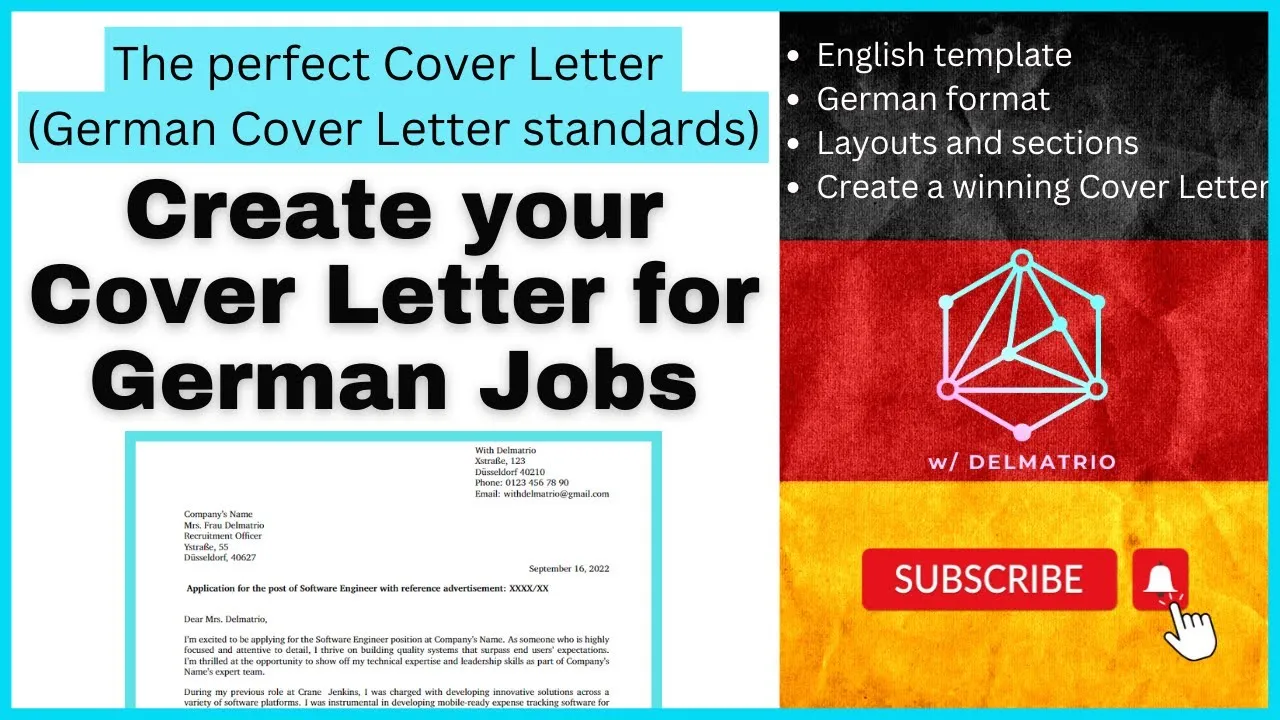
Avoiding common mistakes is essential for a successful cover letter. Several errors can immediately disqualify your application. These include grammatical errors, generic content, lack of research, and neglecting cultural nuances. Careful attention to detail and tailoring your letter to each application are crucial. Proofreading your document multiple times and seeking feedback from a native German speaker can significantly improve your chances of success. Always review your letter before submitting it.
Typos and Grammatical Errors
Typos and grammatical errors can damage your credibility. Proofread your cover letter carefully for any spelling mistakes, grammatical errors, and punctuation issues. These errors demonstrate a lack of attention to detail and can suggest a lack of professionalism. Use spell-check tools and consider having a native German speaker review your letter. Attention to detail is highly valued in German culture, and a clean, error-free document is essential for a positive first impression. Ensure the language is clear and concise.
Generic Content
Using generic content is a common mistake. Avoid sending the same cover letter to multiple companies. Tailor your letter to each specific job and company. Highlight the skills and experiences that are most relevant to the position and company. Show that you understand the company’s mission, values, and goals. Generic letters show a lack of interest and research. Personalize your letter by mentioning something specific about the company or the role that interests you.
Ignoring Company Culture
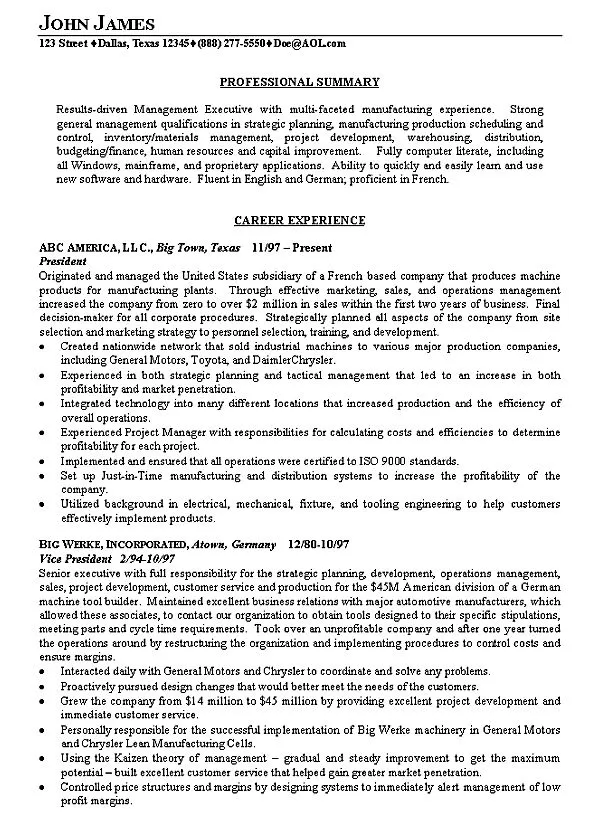
Ignoring German company culture can be a significant error. Research the company’s values, communication style, and work environment. Adapt your tone and language to align with the company culture. Demonstrate your understanding of German work ethics, such as punctuality, organization, and direct communication. Avoid using overly casual language or informal greetings. Show that you are prepared to adapt to the local work environment, which is important for success. Showing respect for cultural norms is important.
Adapting Your Cover Letter
Adapting your cover letter to each application is crucial for success. This process involves researching the company, tailoring your letter to the job description, and using keywords effectively. By taking these steps, you can create a compelling cover letter that highlights your qualifications and demonstrates your genuine interest in the position. This personalized approach significantly increases your chances of getting an interview.
Researching the Company
Before writing your cover letter, thoroughly research the company. Visit their website, read news articles, and review their social media profiles. Understand their mission, values, and recent projects. This research will help you tailor your letter to their specific needs and demonstrate your genuine interest. Identify key aspects of the company’s culture and mention them in your letter. Showing you understand the company’s goals will make your application stand out. This demonstrates initiative and a desire to be part of their team. (company-research)
Tailoring to the Job Description
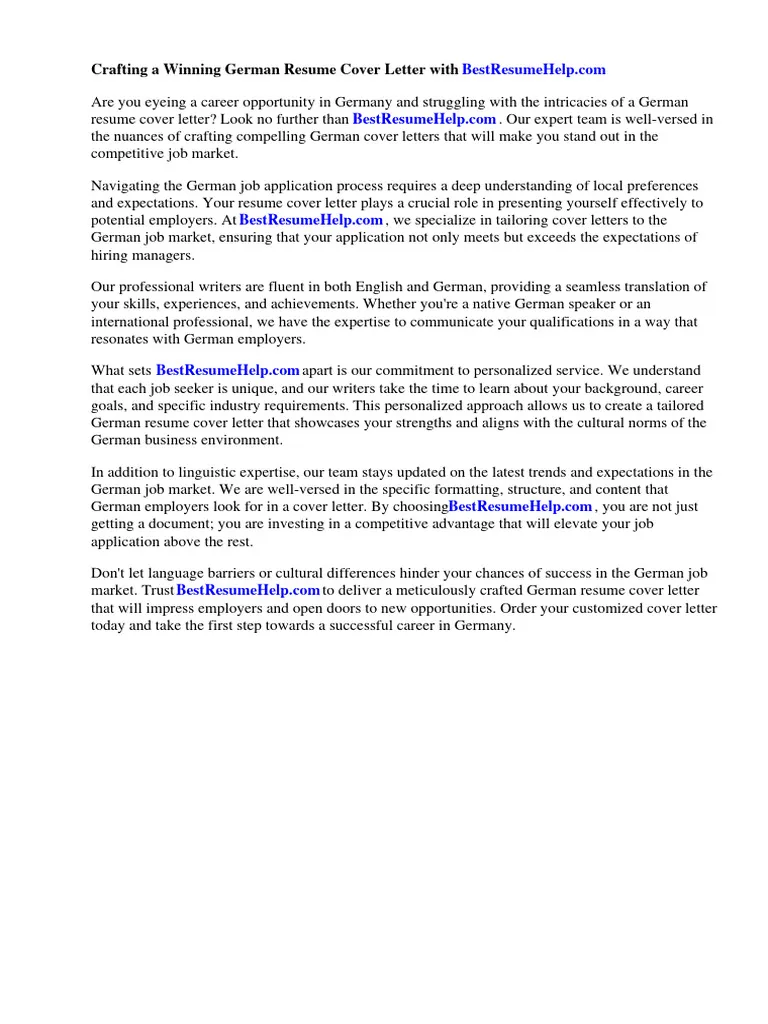
Carefully review the job description and identify the key requirements and qualifications. Align your skills and experiences with the specific needs of the position. Use the job description as a guide to highlight the most relevant aspects of your background. Provide examples of your accomplishments that demonstrate your ability to meet the requirements. By tailoring your letter to the job description, you show the employer that you are a good fit and have what they are looking for. (tailoring-cover-letter)
Using Keywords Effectively
Use relevant keywords from the job description throughout your cover letter. These keywords help the hiring manager quickly identify your qualifications. Integrate these keywords naturally into your sentences, demonstrating your understanding of the job requirements. Avoid keyword stuffing, which can make your letter sound unnatural and less effective. The right balance of keywords and personalized language ensures your letter is both informative and engaging. (using-keywords-effectively)
Examples of Effective German Cover Letters
Reviewing examples of effective German cover letters can provide valuable insights and guidance. These examples showcase the structure, tone, and content that are typically successful in the German job market. Use these examples as templates and modify them to reflect your unique skills and experience. Remember to personalize each letter to the specific job and company. Analyzing these examples will give you a practical understanding of what a successful cover letter looks like and what to strive for.
Example 1: Entry-Level Position
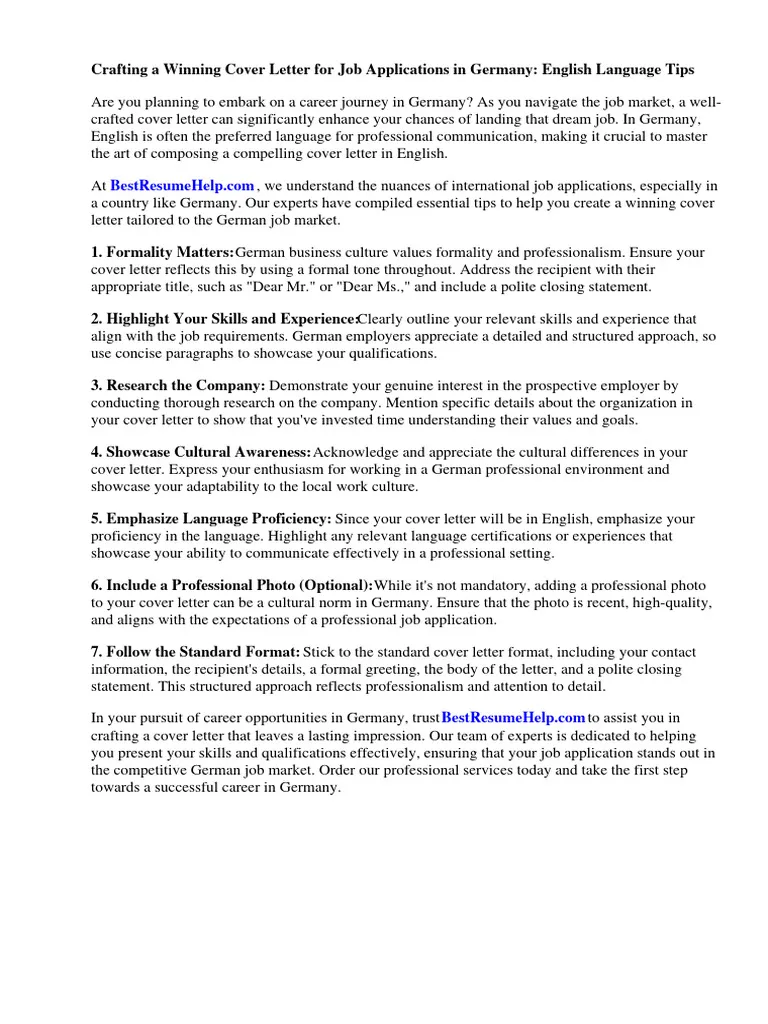
An entry-level cover letter should highlight your educational background, any internships or relevant experience, and your eagerness to learn and contribute. Focus on transferable skills, such as communication, teamwork, and problem-solving. Show your enthusiasm for the company and the industry. Provide specific examples of your accomplishments and demonstrate your potential to grow within the company. Tailor the letter to the specific requirements of the entry-level position and emphasize your willingness to learn. (cover-letter-example-1)
Example 2: Experienced Professional
For experienced professionals, the cover letter should highlight your professional achievements and demonstrate your expertise. Provide specific examples of your accomplishments and quantify your results whenever possible. Showcase your leadership skills, project management experience, and industry knowledge. Tailor the letter to the specific requirements of the position and emphasize the value you can bring to the company. Demonstrate how your experience aligns with the company’s goals and objectives. (cover-letter-example-2)
Example 3: Career Change
When making a career change, your cover letter should explain your reasons for the change and highlight transferable skills that are relevant to the new role. Emphasize any relevant experience or training that aligns with the new career path. Show your passion for the new field and your willingness to learn and adapt. Address any potential gaps in your experience and explain how you plan to overcome them. Demonstrate your commitment to making a successful transition and contributing to the company. Provide a clear explanation for your career shift.
Formatting and Design Tips
The formatting and design of your German cover letter are important for readability and professionalism. Choose a clear and easy-to-read font, use appropriate margins, and maintain a professional layout. A well-formatted letter is easier to read and demonstrates your attention to detail. Consistent formatting throughout your letter enhances its overall appearance and makes a positive impression on the hiring manager. Keep the design clean and simple. A well-formatted document enhances readability and professionalism.
Font Selection
Choose a professional and easy-to-read font, such as Arial, Calibri, or Times New Roman. Maintain a consistent font size throughout your letter, typically between 10 and 12 points. Avoid using overly decorative or unconventional fonts. The font should be clean and legible to ensure your letter is easy to read. Choose a font that reflects professionalism and attention to detail. Consider readability first and foremost; choose a font that is easily readable. (font-selection)
Layout and Structure
Use a clear and organized layout for your cover letter. Include appropriate margins, typically one inch on all sides. Use a consistent font size and style throughout your letter. Ensure the letter is well-spaced and easy to read. Structure your content logically, with clear headings and paragraphs. The layout should guide the reader through the document and make it easy to find information. Maintain a professional and balanced look. (layout-and-structure)
Proofreading and Editing
Thoroughly proofread and edit your cover letter for any errors. Check for spelling mistakes, grammatical errors, and punctuation issues. Ensure the language is clear and concise. Have a native German speaker review your letter. Proofreading is essential for maintaining a professional appearance. A clean and error-free document demonstrates your attention to detail. Always review your document before sending it, paying close attention to detail. (proofreading-and-editing)
Resources for Further Learning
There are many resources available to help you improve your German cover letter writing skills. These resources include websites, templates, and professional review services. Utilize these resources to enhance your knowledge and ensure your cover letter meets the standards of the German job market. Taking advantage of these tools can give you a competitive edge in your job search. Continuous learning and improvement are crucial for career success.
Websites and Templates
Numerous websites offer cover letter templates and writing guides. Explore these resources to gain a better understanding of German cover letter structure and content. Many templates are available in German, making it easier to adapt your letter. These resources can provide inspiration and help you create a polished cover letter. Customize the templates to reflect your unique qualifications and experiences. Use templates as a starting point and make them your own. (websites-and-templates)
Professional Review Services
Consider using a professional cover letter review service. These services provide expert feedback on your cover letter, helping you identify areas for improvement. A professional review can ensure your letter meets the standards of the German job market and effectively highlights your qualifications. A fresh perspective from a professional can help you catch any mistakes and make your letter more compelling. This is a great investment in your job search. (professional-review-services)
Conclusion
Writing a successful cover letter for a job in Germany requires careful attention to detail, adherence to cultural norms, and a clear understanding of the specific job requirements. By following the guidelines outlined in this guide, you can create a compelling cover letter that effectively showcases your skills, experience, and motivation. Remember to tailor your letter to each application, proofread it carefully, and seek feedback when needed. A well-crafted cover letter can significantly increase your chances of securing an interview and landing your dream job in Germany. Good luck with your job search!
